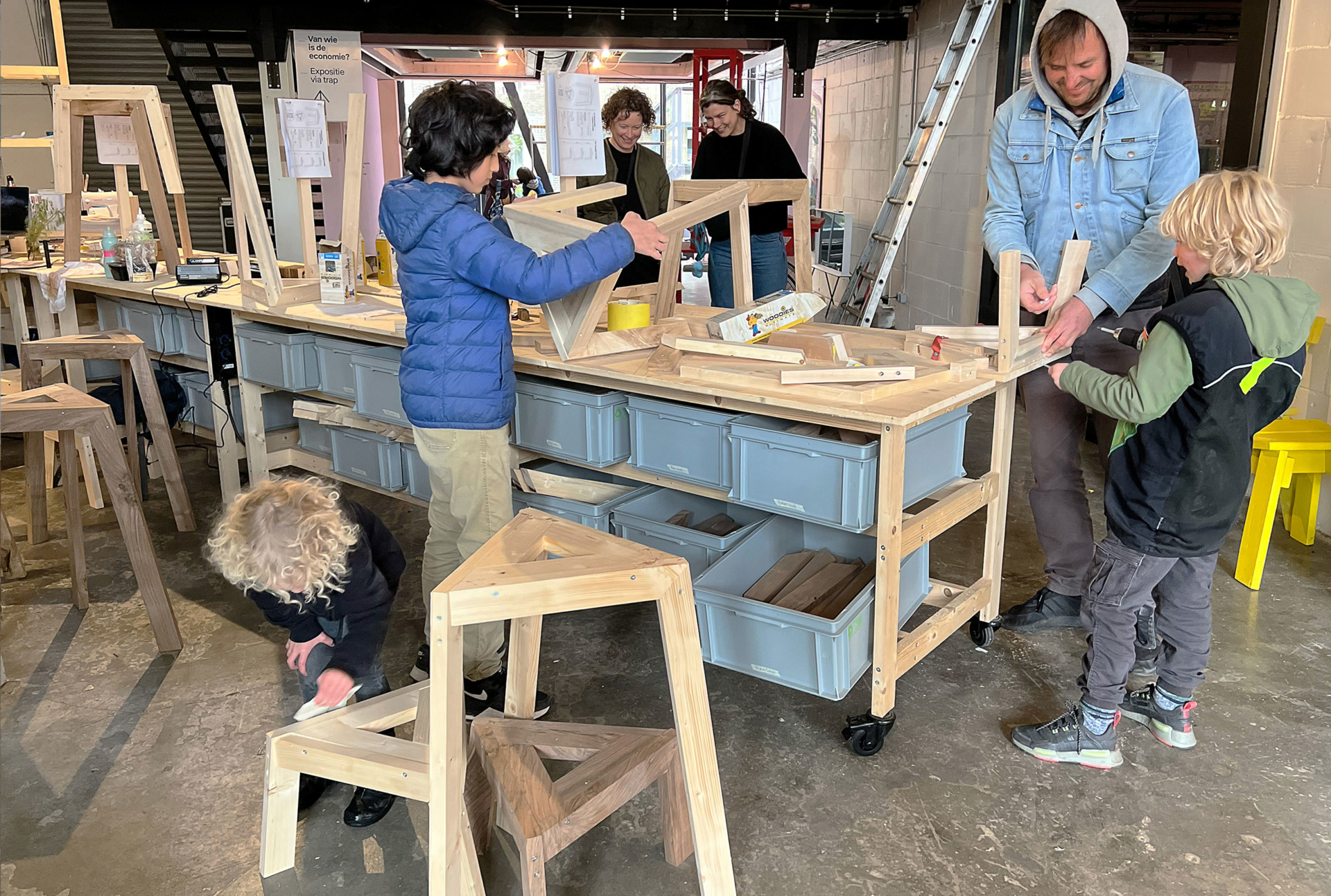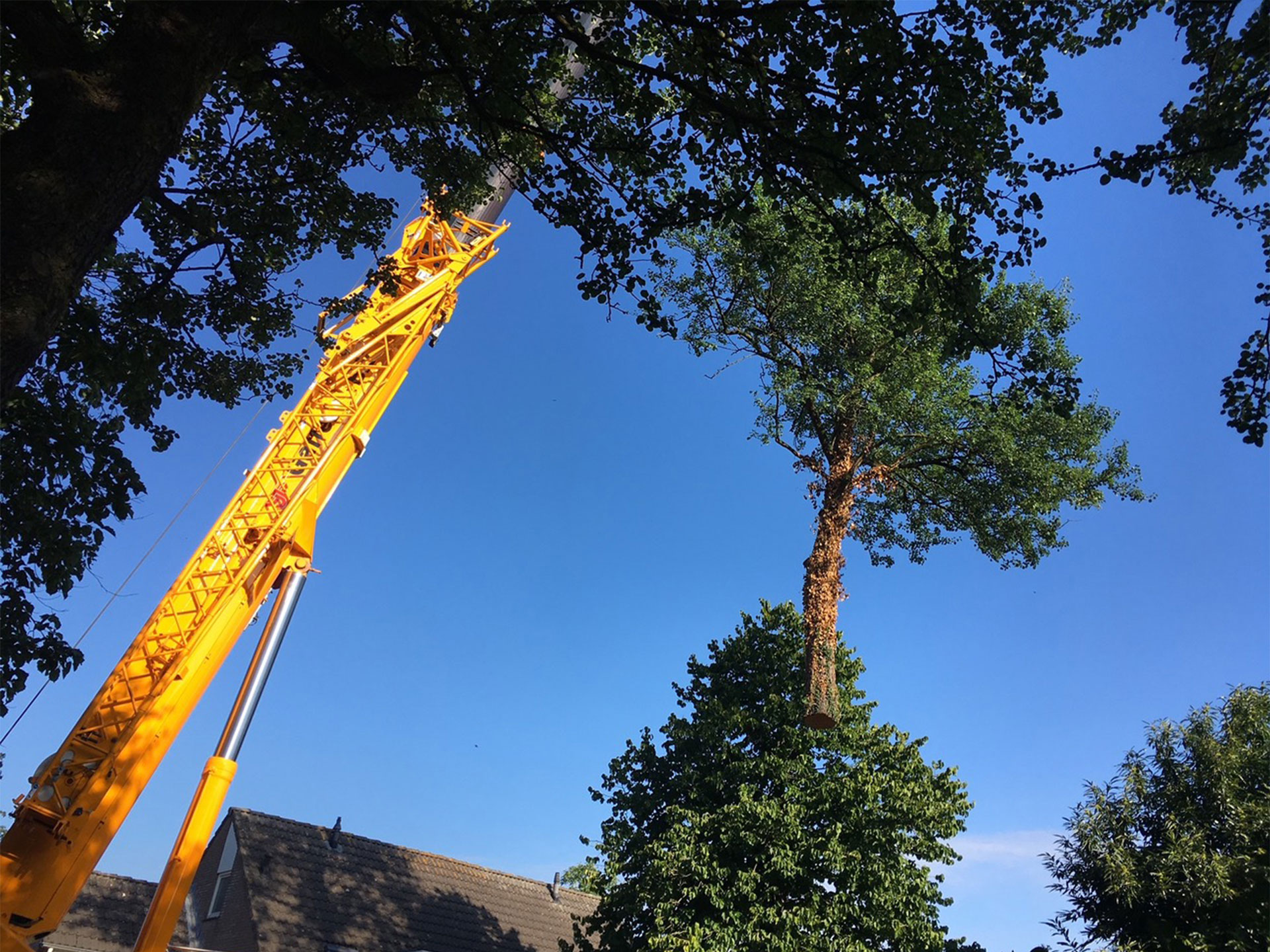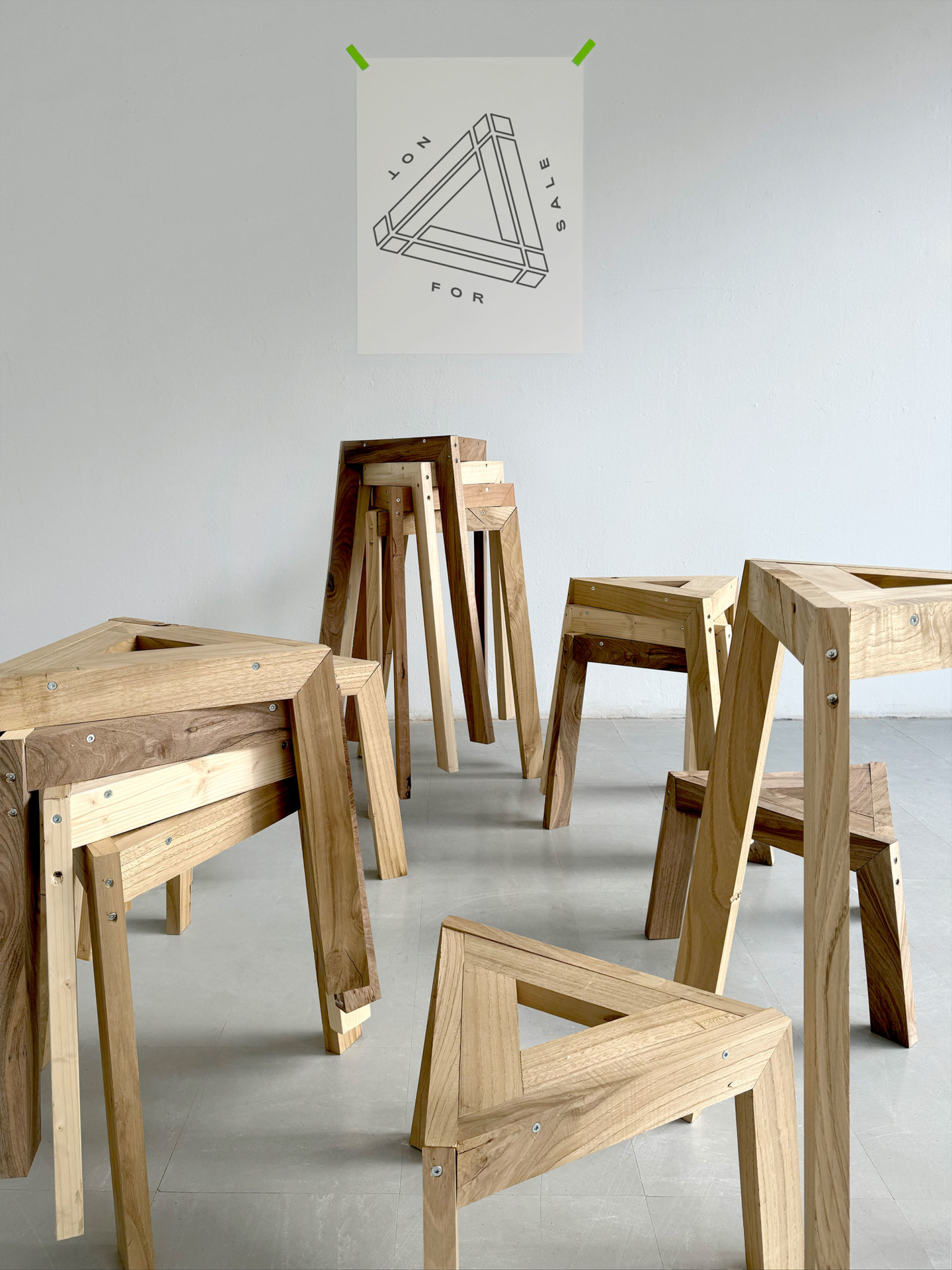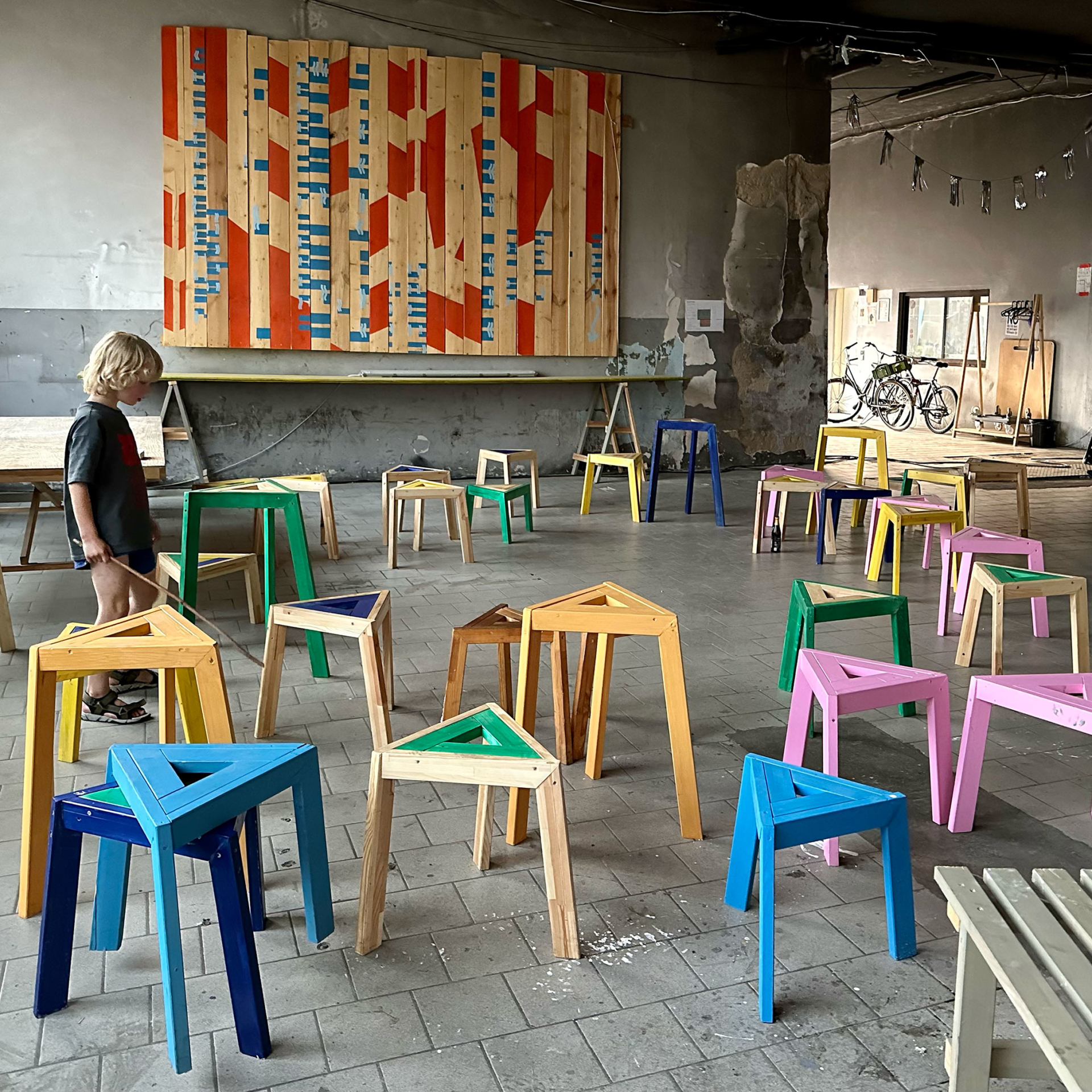WOOD FOOD INK Market
A space for assembly, collective creation, sharing, and decision-making by Constructlab. As part of the Who owns the Economy Festival in Den Bosch Constructlab ran a special workshop at the Werkwarenhuis in September and October of 2023. The workshop focused on three aspects: WOOD, FOOD, and INK. The underlying concept of the market proposed questions about collaborative economies and cooperative intelligence. The Market revolved around three axes: a stool making assembly line, a printing workshop and a kitchen.
The installation was not solely about production; its true essence lied in the models that underpinned its activation. It explored who gets to participate in the process, how things are made and what resources, thoughts or ingredients are used. The team that ran the market consisted of various actors, each with their own preconditions and considerations, such as age, skills, talent, cultural background or country. Understanding and accommodating these diverse factors became crucial in realising the project’s feasibility and viability. The installation further examined the implications of agents changing roles. As individuals assume different positions and responsibilities, new dynamics and opportunities emerged. By fostering an atmosphere of cooperative intelligence, the project tried to encouraged behaviour that could promote shared learning, adaptability, and collective problem-solving.
The WOOD FOOD INK Market encouraged a deeper exploration of the underlying motivations and reasons behind Constructlab projects that often go beyond monetary gains. The installation delved into the intrinsic motivations and values that drive individuals and communities. By engaging participants in dialogue and exploring alternative models, the installation served as a catalyst for action and reflection. As visitors became active participants they share their perspectives and helped to decide. In this manner the WOOD FOOD INK market became a space where diverse voices united to reimagine our notion of collaboration.
Deconstruct Consumption
Many designers, craftspeople, and artists want to work towards a more fair and sustainable reality. Yet, the environments we inhabit often reinforce unsustainable resource use and disconnect us from nature. A project like the Wood Food Ink Market sought to be critical of itself. Yet, this resulted in many challenges. For instance, the project aimed to be crafted from locally sourced materials (sometimes recycled, upcycled, or precycled), embodying principles of circularity and dematerialisation.
The cost of materials and the amount of time available limited local sourcing to the wood for the stools. Chestnut, pear, nut, and poplar wood were provided by a local sawmill that cuts trees locally. The wood for the tables, however, was bought through regular commercial wood suppliers. The same could be said about the ingredients for the food. It was difficult to get in contact with local growers, but through the mediation of visitors, some solid contacts were made.However, “local” sometimes didn’t mean local. There were multiple mills in the area that profiled themselves as “local.” The flour was locally milled, but not locally grown.
A Market of Exchange
Rethinking values is a hard job. The market tried to catalyse collaborations between the makers who ran the stool-making assembly line, the printing workshop, and the kitchen. Participation explored whether they could demystify the creation process and empower participants to engage in alternative methods. The site was transformed into a temporary commons, blurring the boundaries between performer and audience, producer and consumer. It showcased our reliance on unsustainable systems and also questioned how economic exchange could be reimagined around knowledge sharing and time-based currencies.
The stool and the network
Within Constructlab’s projects, recurring typologies emerge, from social spaces like agoras and saunas to food-centric areas like kitchens and pizza ovens. These typologies are constantly reinterpreted throughout the network.Local conditions inform the specific shape and function of each iteration, while knowledge about these typologies travels and evolves within the network. Ideas, solutions, and technical expertise regarding a particular stool design, for example, grew and develop over time.
The Constructlab tripod stool first appeared in 2014 at the Van Abbemuseum’s Museum of Arte Util in Eindhoven.Over time, numerous versions have been created by various individuals in diverse contexts. However, the fascinating journey this stool has taken within the network remains unexplored. It has inhabited numerous projects yet has never been the subject of discussion. No one has claimed ownership of its design, and its adaptability has eliminated the need for permission to modify it. The unprescribed nature, the absence of formality, reflects the collaborative spirit of the network.
Want to make one or improve it? Here’s a manual: Constructlab_ tripod_stool.pdf





















